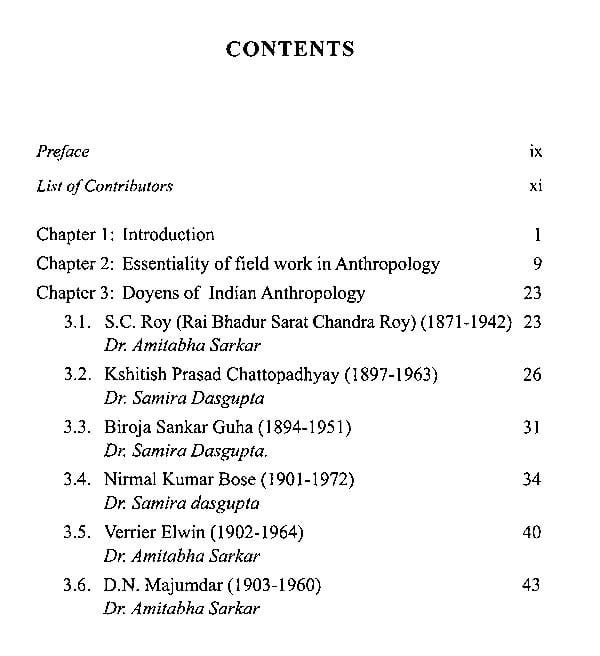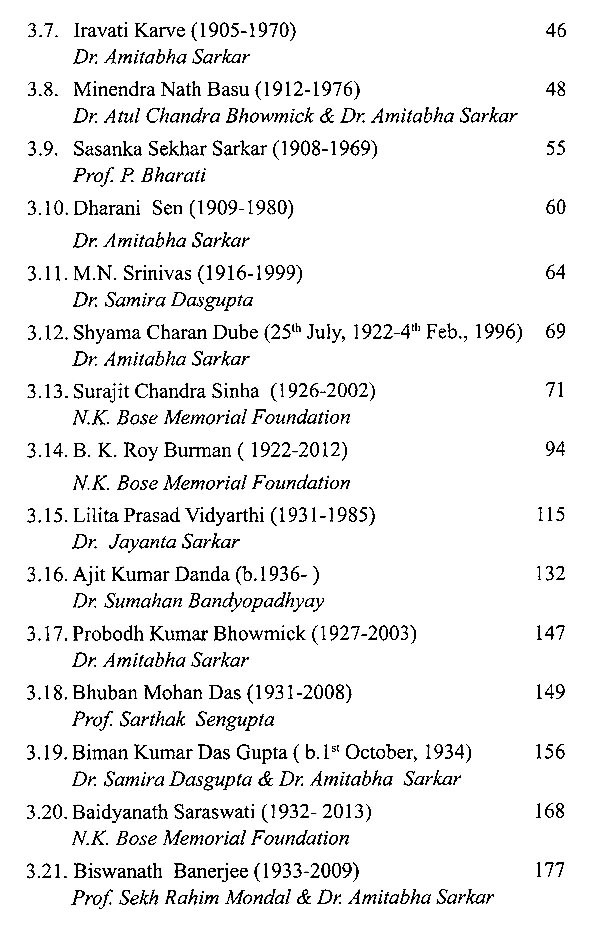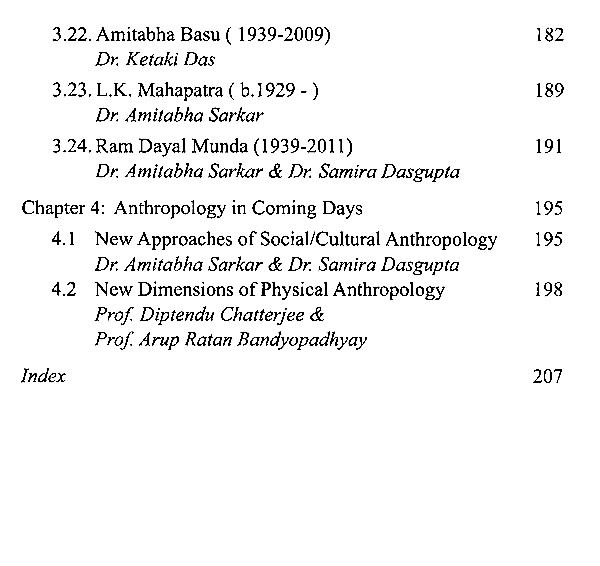
Doyene of Indian Anthropology
Book Specification
| Item Code: | AZG168 |
| Author: | Amitabh Sarkar and Samira Das Gupta |
| Publisher: | AGAM KALA PRAKASHAN, DELHI |
| Language: | ENGLISH |
| Edition: | 2019 |
| ISBN: | 9788193845783 |
| Pages: | 220 |
| Cover: | HARDCOVER |
| Other Details | 9.50x6.50 inch |
| Weight | 500 gm |
Book Description
Under this backdrop how anthropological knowledge was helpful for the then administrators of British Government and accordingly the experts were inducted for good governance of the people under their administrative control.
The present treatise is a compilation of some western scholars who studied various Indian villages, which were helpful for the then British administrators. Following these trend there were a number of Indian scholars during this 100 years from 1920-2019, whose contributions in anthropological domain cannot be ignored. Lastly, the forthcoming vision of Anthropology in our country is also dealt. This book will not only helpful for the students but also it will give light to present administrators of various States of our country for understanding the society through anthropological knowledge for better execution of developmental work under their control.
Dr. (Mrs.) Samira Dasgupta (Born: 1953) is a M.Sc., Ph.D (Science) in Anthropology from the University of Calcutta. She has specialized in Cultural Anthropology and has noteworthy contributions are on culture ecology, role and status of tribal women in unorganized sector, tribal ethnography, ethno-science, religious belief system, traditional knowledge system among the tribals and cultural tourism etc. deserve for praise in academic arena being a perceptive researcher. She has published 16 (sixteen) books and about 100 research papers in various reputed journals of the country. She possesses 35 years research experience and carried out intensive field work among various tribal communities and weaker section of Rajasthan, West Bengal, Chhattisgarh, Odisha and Jharkhand. She is a life member of INCAA, Indian Science Congress Association. She was associated with Anthropological Survey of India from 1977 to 2013 and carried out several research projects for ASI where during Xlth Plan Period she was involved with the study of Tangible & Intangible Cultural Heritage Traditional Knowledge System: Ethno Medicine. She is also involved as consultant researcher and devoted in generating empirical data from tribal area of Odisha.
Under this backdrop numbers of experts were inducted by the Royal British Empire and the East India Company's official -in charge to know the diverse religious beliefs, customs, customary laws and habits of Indian people. The then British government undertook different steps to study the 'People of India' about their culture and traditional life.
There were some remarkable contributions in the field of anthropology by the western scholars who worked in this Indian sub continent; among which a few names are as Louis Dumont, Mckim Marriot, Milton Singer, Kathleen Gough, A.C. Mayer, M.E. Opler, T.S. Epstein, A.D. Ross, Grigson, Berreman, Neville Watts, Dalton, Risley, F.G. Bailey, Edward Jay, Haimendorf, Martin Orans, E.A. Gait and so on. Apart from these we cannot ignore the milestone contributions in the domain of anthropology by several Indian scholars.
Under this backdrop in 1774 the Royal Asiatic Society of Bengal at Calcutta was established under the President ship of the society by Sir William Jones. The main objective of the society was to study the Nature and Man in India. Accordingly a good number of scholars were appointed to conduct empirical study.
**Contents and Sample Pages**


















